Life
Sign up for our newsletter
We summarize the week's scientific breakthroughs every Thursday.
-
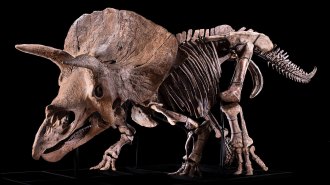 Paleontology
PaleontologyA hole in a Triceratops named Big John probably came from combat
The nature of the wound and signs of healing suggest that the dinosaur's bony frill was impaled by a Triceratops rival.
By Anna Gibbs -
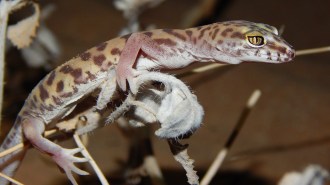 Animals
AnimalsHow a western banded gecko eats a scorpion
New high-speed video details how usually mild-mannered geckos shake and incapacitate their venomous prey.
-
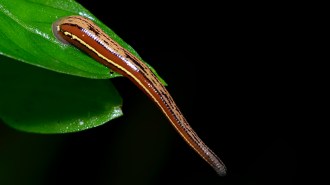 Animals
AnimalsLeeches expose wildlife’s whereabouts and may aid conservation efforts
DNA from the blood meals of more than 30,000 leeches shows how animals use the protected Ailaoshan Nature Reserve in China.
By Nikk Ogasa -
 Humans
HumansWhere you grew up may shape your navigational skills
People raised in cities with simple, gridlike layouts were worse at navigating in a video game designed for studying the brain.
-
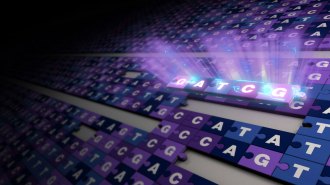 Genetics
GeneticsWe finally have a fully complete human genome
Finding the missing 8 percent of the human genome gives researchers a more powerful tool to better understand human health, disease and evolution.
-
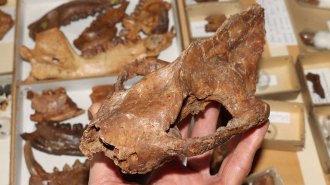 Paleontology
PaleontologyMammals’ bodies outpaced their brains right after the dinosaurs died
Fossils show that mammals’ brains and bodies did not balloon together. The animals’ brains grew bigger later.
-
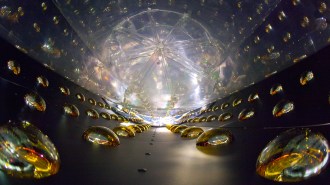 Science & Society
Science & SocietyHere are the Top 10 times scientific imagination failed
Some scientists of the past couldn’t imagine that atoms or gravity waves could one day be studied – or nuclear energy harnessed.
-
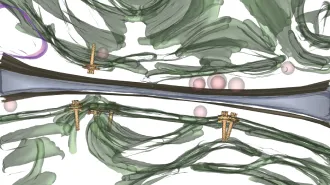 Microbes
MicrobesNew images reveal details of two bacteria’s molecular syringes
It’s unclear exactly how these species use their tiny injectors, but learning how they work could lead to nanodevices that target specific bacteria.
-
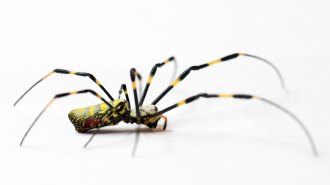 Animals
AnimalsInvasive jorō spiders get huge and flashy — if they’re female
Taking the pulse (literally) of female jorō spiders hints that the arachnid might push farther north than a relative that has stayed put in the South.
By Susan Milius -
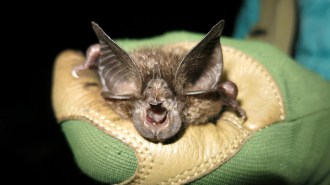 Animals
AnimalsHow scientists found an African bat lost to science for 40 years
African researchers had been searching for the Hill’s horseshoe bat since 2013. Now, the first recording of its echolocation call may help find more.
By Anna Gibbs -
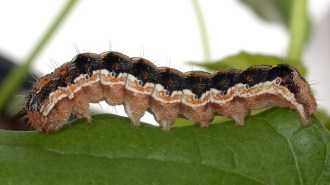 Life
LifeHow a virus turns caterpillars into zombies doomed to climb to their deaths
By manipulating genes used in vision, a virus sends its host caterpillar on a doomed quest for sunlight, increasing the chances for viral spread.
By Jake Buehler -
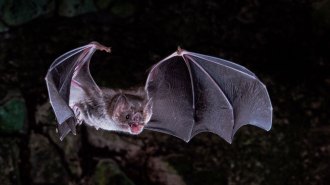 Life
LifeLost genes may help explain how vampire bats survive on blood alone
The 13 identified genes underpin a range of physiological and behavioral strategies that the bats have evolved.